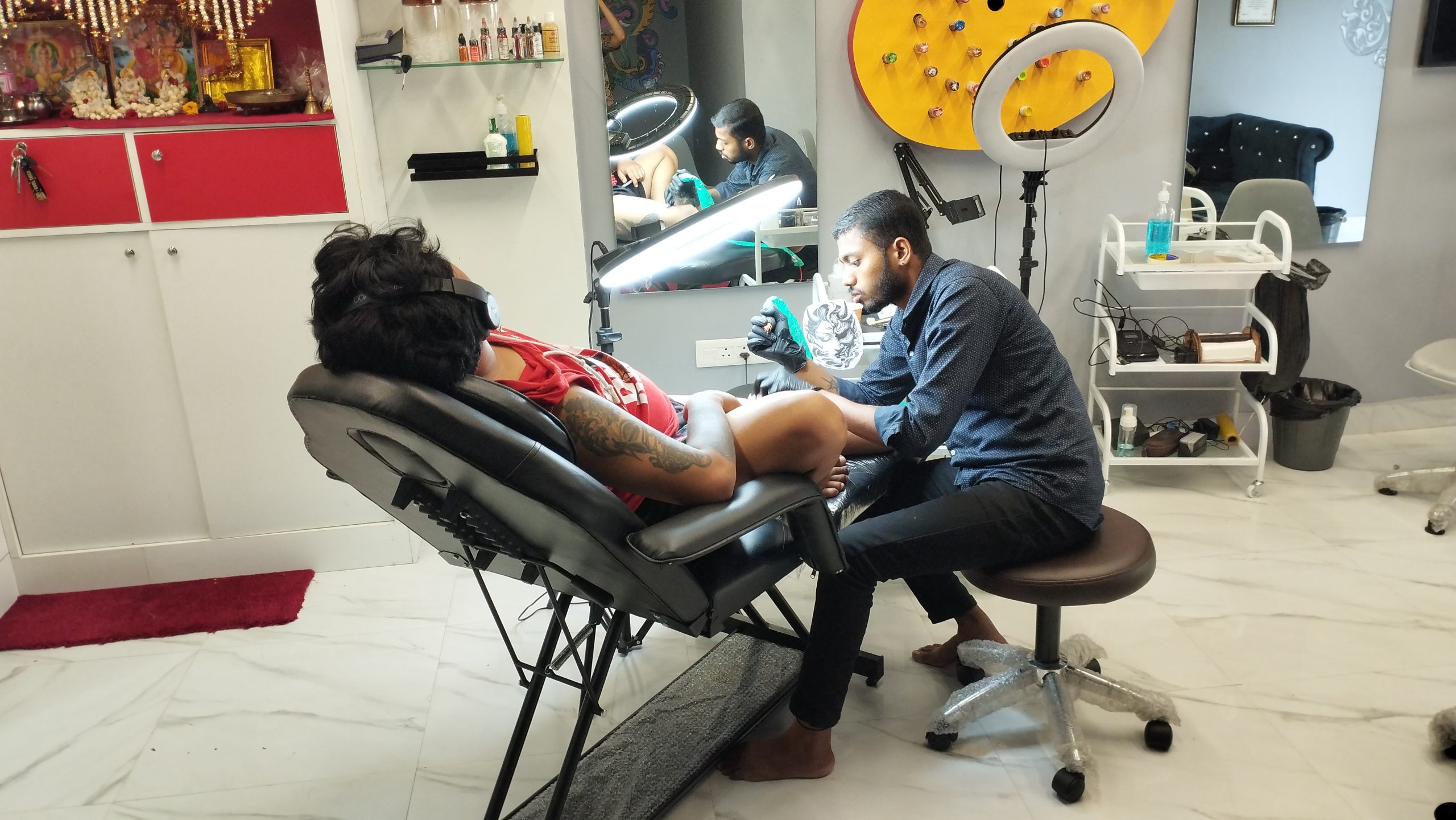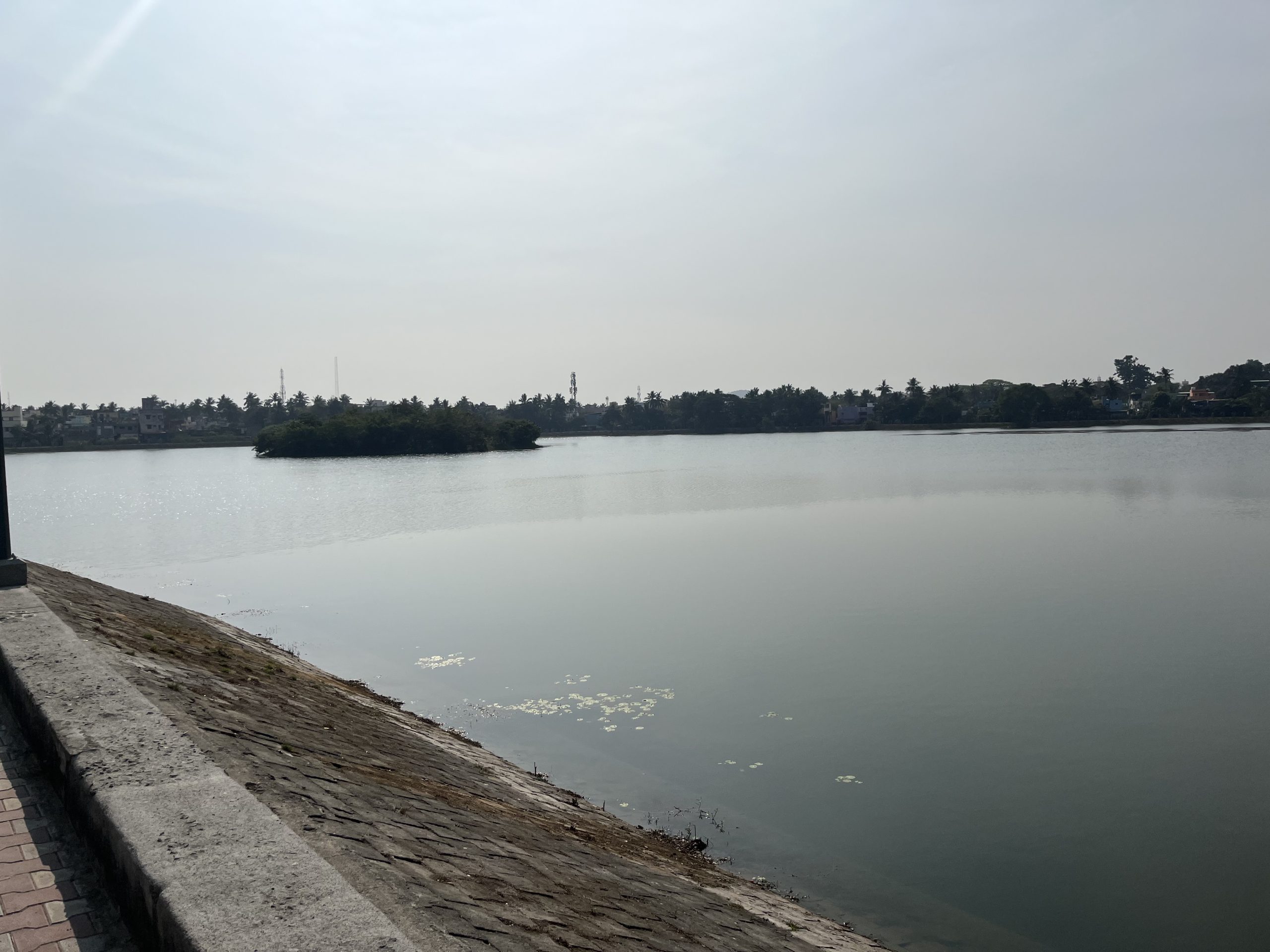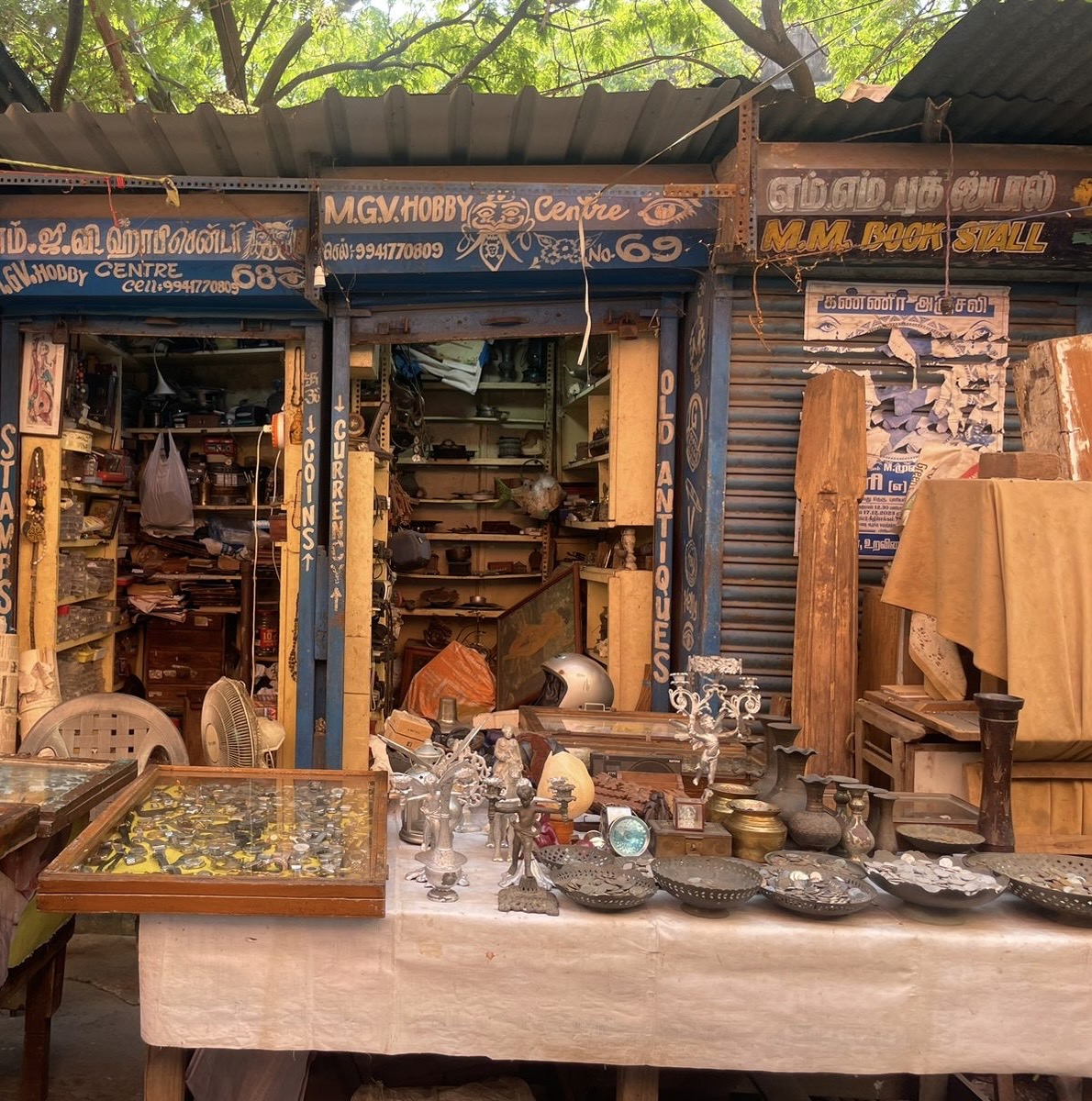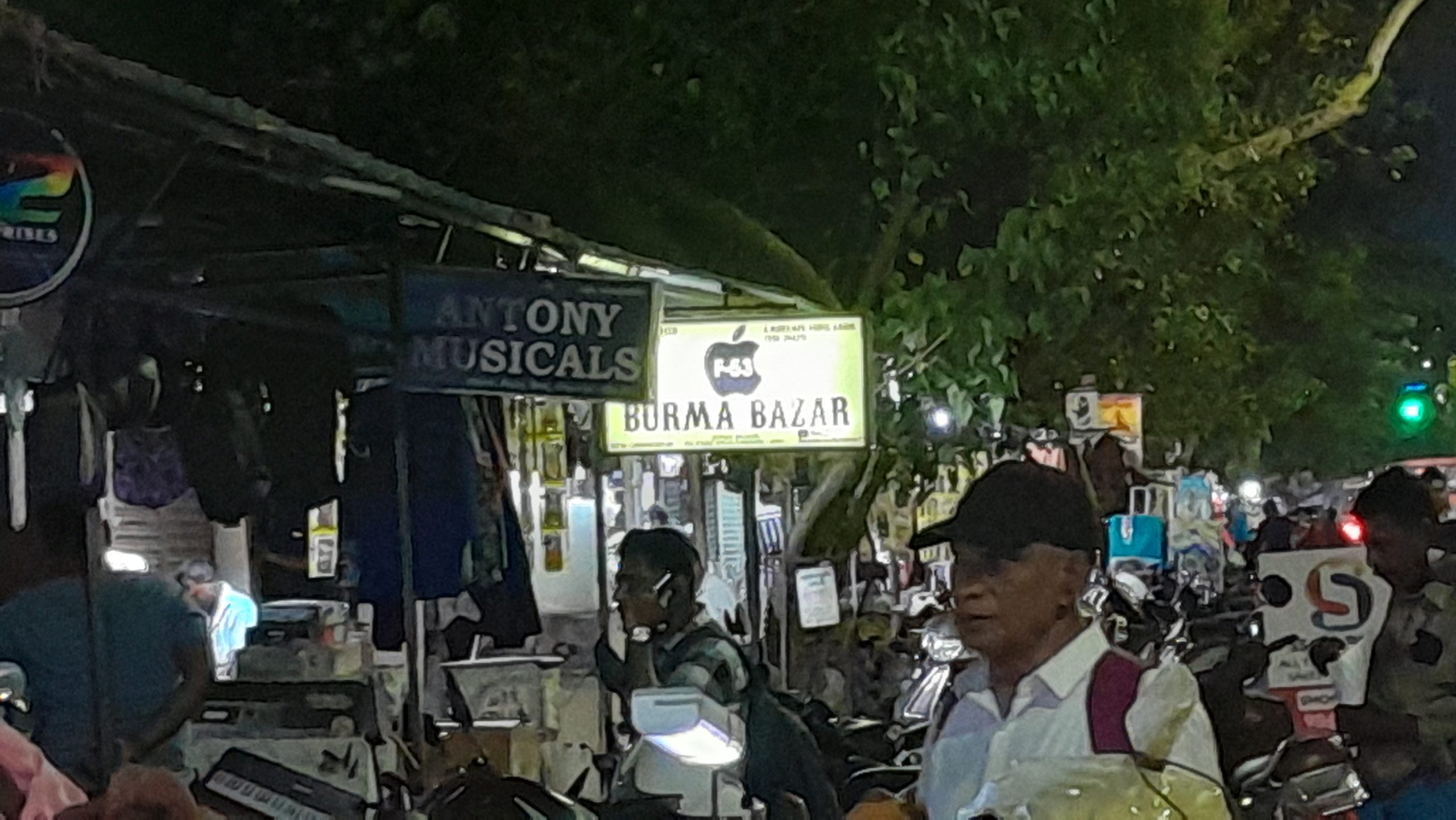A peek into the growing tattoo culture in Chennai, which is embracing changes
Ragini De
At the Divine Devil Tattoo studio in Chennai, Besant Nagar, a man in his thirties is reclined on a chair with his earphones on; his arms are covered in ink, and his leg stretched out on the chair’s leg support. A tattoo artist armed with his tattoo machine, proceeds to start drawing on his skin. A vibrating whirr echoes through the studio intermittently, as the black ink gets permanently etched on his skin.
On a couch at the entrance sits Vijay Kumar, the founder of the studio busy taking calls from clients. Coming from Mumbai, he settled in Chennai and opened a studio here. “The tattoo culture is more vibrant in Delhi, Mumbai and Bangalore. In Chennai, it is quite difficult to set up a studio and expect it to thrive,” he says, thoughtfully.
According to Vijay, much of it has to do with the lack of awareness about tattoos and their pricing.
“If you go to the beach you will see numerous tattoo and piercing shops that charge between Rs 50 and Rs 500. But most of those shops don’t have professionally trained artists. Moreover, they use inferior equipment and don’t have a sanitised environment. Customers get infections As a result, they are scared of getting tattoos,” he adds while crossing his arms, which are covered in black and red ink with designs that have deep meanings and associations to him.
“Often people think that tattoos are a western concept. However, it is not. It has always been a part of Indian culture,” explains Naveen Kumar, founder of Irezumi Studio. “I set up Irezumi in 2006. It was one of the first studios to be set up in South India. That time, it was difficult as Chennai was a conservative society. Now, people of all ages ranging from 18 year olds to 70 year olds visit us to get tattoos,” he adds.
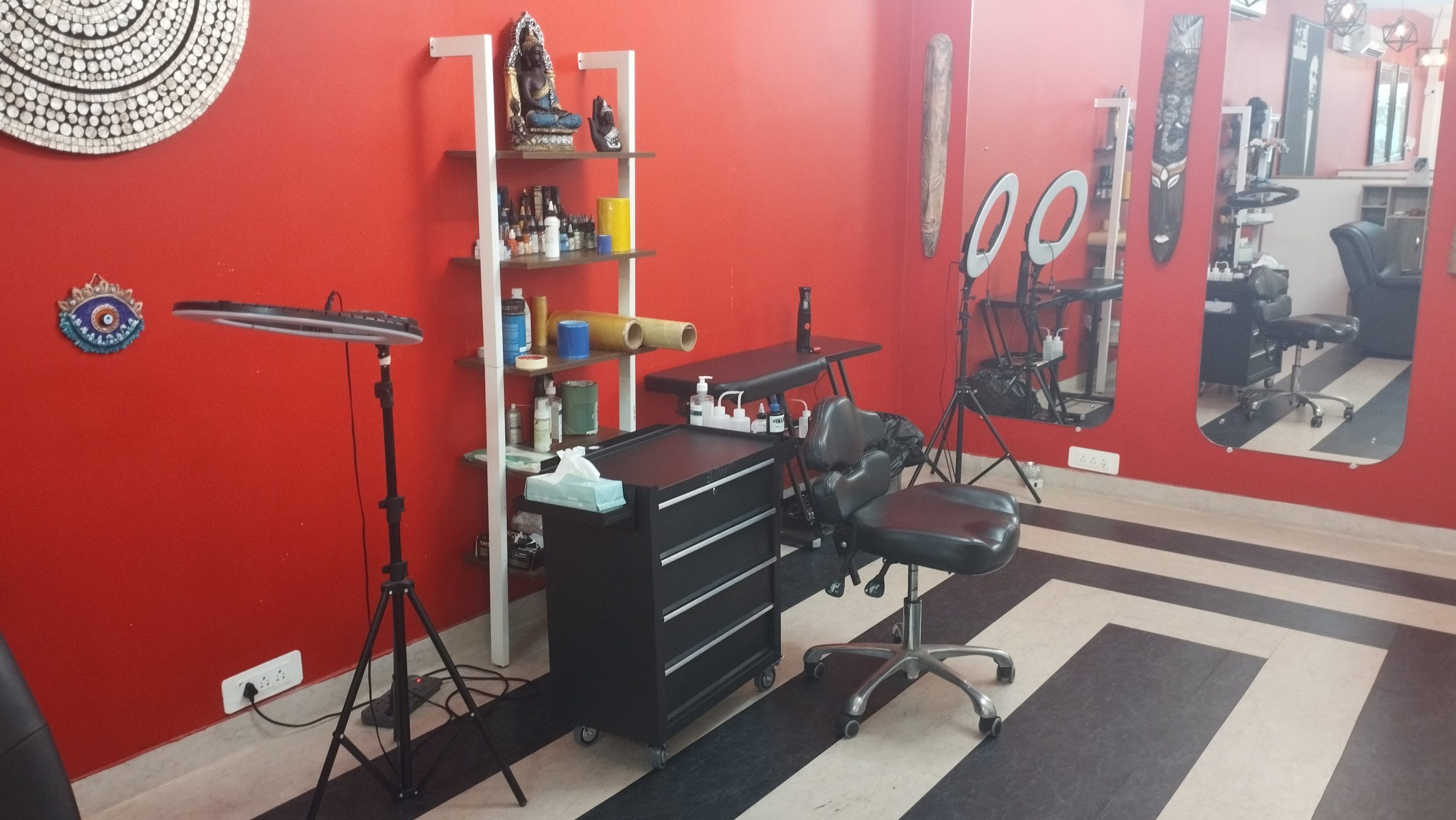
For Indian tribal communities like Baigas, Bhils, Santhals, and Gonds, tattooing signifies social status and life stages. In Southern India, mainly Tamil Nadu, “Pachakutharathu” tattoos were common in the pre-1980s. Nomadic artists made patterns of “kollam,” which were meant to protect people against evil and ensure their safe passage to the afterlife.
“The taboo against tattoos started growing when prisoners began to be marked with tattoos. People no longer considered them symbols of pride and memory. Now the perceptions have begun to change again,” says Pawa (24), a female artist and a professional piercer. The NIFT-graduate is currently interning at Irezumi.
Other common taboos are about tattoo artists being rough and aggressive men, tattoos being “uncivilised,” or that the studios are dull, dingy, and “unprofessional.” “If you visit our studio you will realise it is not like that,” says Naveen.
In response to a question about the current trend of tattoos, Naveen explained, “When it comes to tattooing, we do not follow any trends. A tattoo is permanent on a person. It has a significant meaning for each person; some may use it to decorate their bodies, some may etch a memory, while some may want to use it for religious significance. It follows no trend.”
“The older generation gets tattoos of religious symbols, like the Om or Shiva’s trident. A very common tattoo idea, which has been existing for a very long time, is writing the names of one’s loved ones. Nowadays, the younger generation views tattoos more as an art form and have begun experimenting. Mandala art, Wave art and much more are being incorporated.During the recent Shivratri, we received many customers who wanted tattoos of Shiva or his trident,” shared Pawa.
Pawa, is a rare example of a female artist in a perceived world of “aggressive men.” as women artists do not seem to be common in Chennai. “I’m from Chennai, and I don’t see many women artists around. I think in the next few years, there may be a change,” says Pawa “We are also lagging behind on tattoo styles, as not many clients are interested in experimenting,” she adds.
Both Irezumi and Divine Devil Tattoos have their own schools. Divine Devil Tattoos run a school, where one can train to be a professional artist. The shelves are neatly arranged with sketchpads, inks, stationery, equipment, and other items necessary for tattooing. On a table sits a student who is just learning how to shade with needle and ink on a board. Artists need to train for at least a month to a year before practicing directly on the skin.

Tattoos are healing for some and painful for others. For every individual, getting a tattoo is always a special occasion. “I consider tattoos my art. It is what got me into the process. For me I want to ensure my client’s wishes come true. I spend a lot of time on designing. As an artist, I have to be patient with my client and my client needs to be patient with me. We need to have a good rapport,” says Rinku (23), an artist from Jammu, who trained under Vijay. Rinku is pouring over his notepad, practicing sketching with complete concentration, which is a prerequisite for any tattoo artist. It is a discipline that will help him hone his skills and achieve excellence in the days to come.

